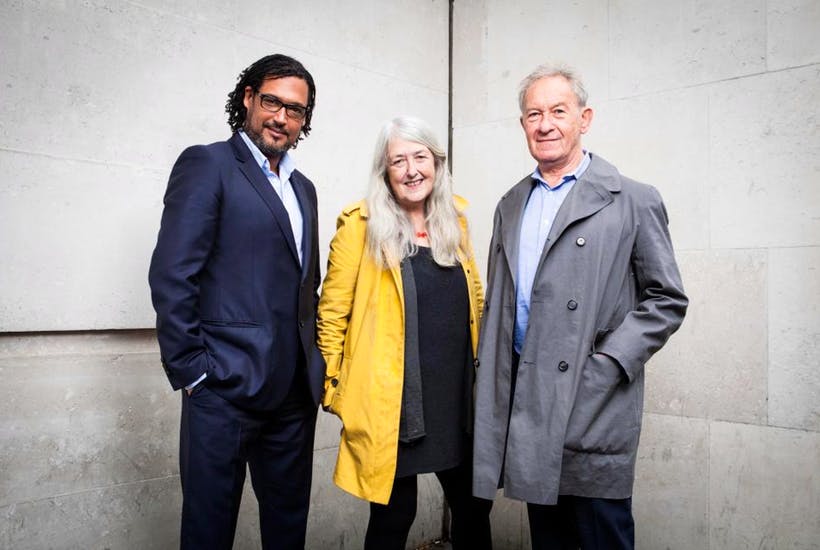I have been faithfully watching Civilisations. It is not at all dumbed down. Indeed, the series suffers from the opposite fault. It is too intellectual — pressed into the service of its presenters’ theories rather than telling a story which the common viewer can follow and enjoy. One finds oneself excited by a particular idea — Mary Beard on the ‘lack of light’ which is often a feature of religious art, David Olusoga on the way that Vermeer never opens windows on the wider world, yet contains symptoms of empire — globes, rugs, a beaver hat — in his interiors. But then one doesn’t learn where it is all tending. The amazing thing about Kenneth Clark’s original Civilisation is how much those of us old enough to have seen it 50 years ago can remember of what we saw. Watching Civilisations, one suffers from cultural jet lag and so can remember little.
It is also somewhat unbelievable. Simon Schama is very brilliant, but is it really true that van Ruysdael’s big windmill represents the Cross of Christ protecting the newly independent Dutch Republic? I don’t know, but given the painter’s careful naturalism, I doubt it. And I know — because a greater expert even than Schama assures me — that Artemisia Gentileschi’s decision to show the allegory of painting without the gagged mouth which the subject sometimes has is not a great assertion of feminism against convention, as Schama claims, but is quite usual. One wearies of being told what paintings are ‘really’ saying.
Part of the problem is the strain of comparison. It is quite right to study the differences and similarities between civilisations, but it is a curious feature of the human mind that this is best done if first acquainted thoroughly with a single tradition. Then one has a secure enough sense of a whole to be able to read across. Without this, one is darting here, there and everywhere. The best comparative bit of the series was Schama’s account of Turkish and Mughal art interacting with western art of the period (and vice versa). This is because the connections are visible, not contrived. I think the series was doomed by its premise that one has to scour the whole world in order to think about civilisation at all. It is really the other way round: one thinks outwards from one’s own smaller space.
The failures of this brave attempt have made me think of a different way that a television account of civilisation could be constructed. It would try to identify the main components of civilisation and give each one a programme — language and writing; government and law; industry, trade and money; science and technology; the arts; love and family; institutions and universities; war; above all, religion, the central impulse of all civilisations until, perhaps, our own. A civilisation starts with a society that cares for its dead, which helps explain why, despite its horror, this Friday is called Good.
This is an extract from Charles Moore’s Notes, which appears in this week’s Spectator







Comments